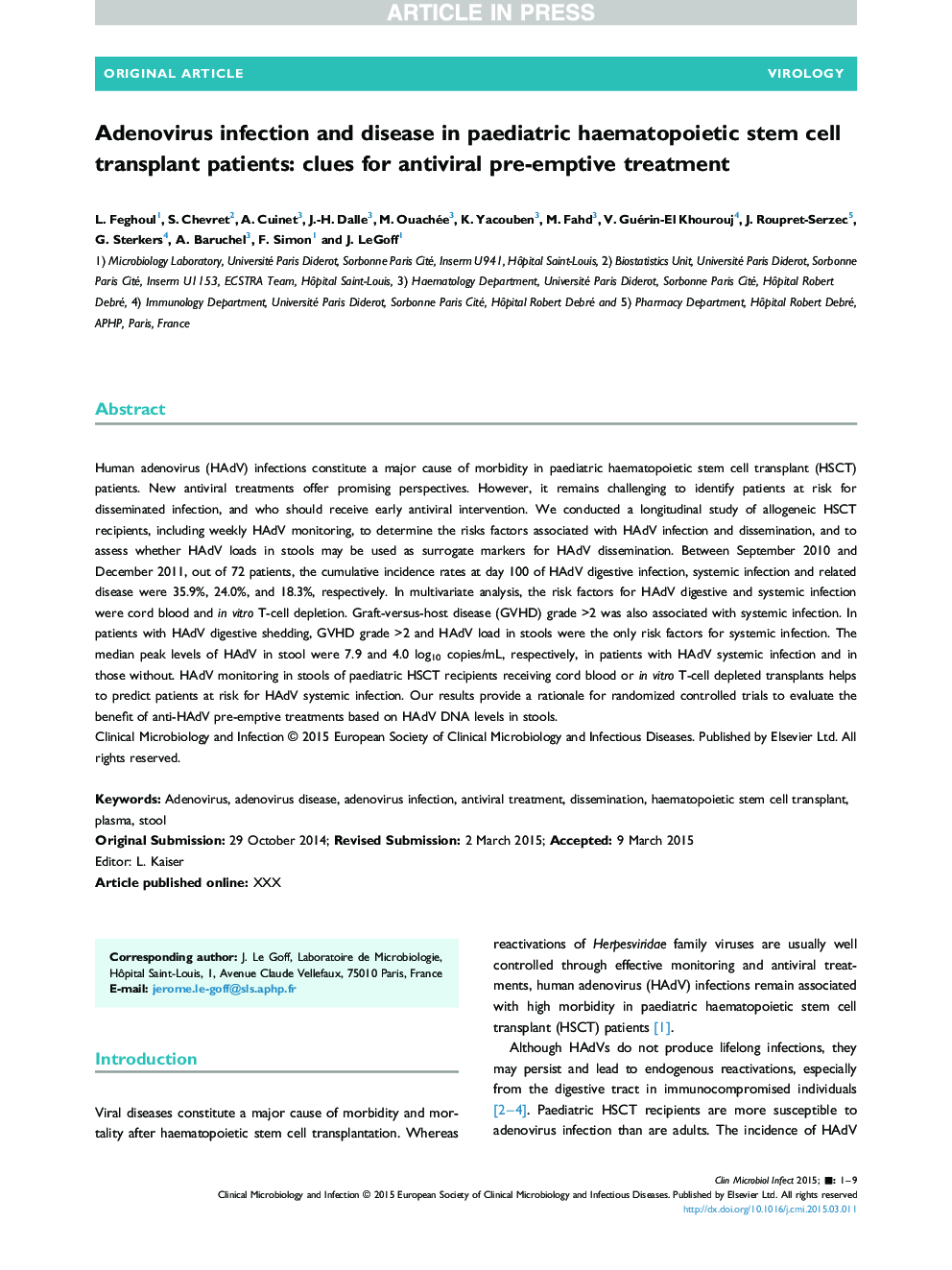| کد مقاله | کد نشریه | سال انتشار | مقاله انگلیسی | نسخه تمام متن |
|---|---|---|---|---|
| 6129933 | 1222165 | 2015 | 9 صفحه PDF | دانلود رایگان |
عنوان انگلیسی مقاله ISI
Adenovirus infection and disease in paediatric haematopoietic stem cell transplant patients: clues for antiviral pre-emptive treatment
ترجمه فارسی عنوان
عفونت آدنویروس و بیماری در بیماران پیوند سلول بنیادی خون بیمار کودکان: سرنخ برای درمان پیشگیرانه ضد ویروسی
دانلود مقاله + سفارش ترجمه
دانلود مقاله ISI انگلیسی
رایگان برای ایرانیان
کلمات کلیدی
آدنویروس، بیماری آدنویروس، عفونت آدنویروس، درمان ضد ویروسی، انتشار پیوند سلول های بنیادی خونریزی، پلاسما، مدفوع،
موضوعات مرتبط
علوم زیستی و بیوفناوری
ایمنی شناسی و میکروب شناسی
میکروب شناسی
چکیده انگلیسی
Human adenovirus (HAdV) infections constitute a major cause of morbidity in paediatric haematopoietic stem cell transplant (HSCT) patients. New antiviral treatments offer promising perspectives. However, it remains challenging to identify patients at risk for disseminated infection, and who should receive early antiviral intervention. We conducted a longitudinal study of allogeneic HSCT recipients, including weekly HAdV monitoring, to determine the risks factors associated with HAdV infection and dissemination, and to assess whether HAdV loads in stools may be used as surrogate markers for HAdV dissemination. Between September 2010 and December 2011, out of 72 patients, the cumulative incidence rates at day 100 of HAdV digestive infection, systemic infection and related disease were 35.9%, 24.0%, and 18.3%, respectively. In multivariate analysis, the risk factors for HAdV digestive and systemic infection were cord blood and in vitro T-cell depletion. Graft-versus-host disease (GVHD) grade >2 was also associated with systemic infection. In patients with HAdV digestive shedding, GVHD grade >2 and HAdV load in stools were the only risk factors for systemic infection. The median peak levels of HAdV in stool were 7.9 and 4.0 log10 copies/mL, respectively, in patients with HAdV systemic infection and in those without. HAdV monitoring in stools of paediatric HSCT recipients receiving cord blood or in vitro T-cell depleted transplants helps to predict patients at risk for HAdV systemic infection. Our results provide a rationale for randomized controlled trials to evaluate the benefit of anti-HAdV pre-emptive treatments based on HAdV DNA levels in stools.
ناشر
Database: Elsevier - ScienceDirect (ساینس دایرکت)
Journal: Clinical Microbiology and Infection - Volume 21, Issue 7, July 2015, Pages 701-709
Journal: Clinical Microbiology and Infection - Volume 21, Issue 7, July 2015, Pages 701-709
نویسندگان
L. Feghoul, S. Chevret, A. Cuinet, J.-H. Dalle, M. Ouachée, K. Yacouben, M. Fahd, V. Guérin-El Khourouj, J. Roupret-Serzec, G. Sterkers, A. Baruchel, F. Simon, J. LeGoff,
